Discover the science behind epigenetic clocks, omega 3s and vitamin D
Ever wondered if the way you age could be influenced not just by time, but by daily habits like what you eat, how you move, and the supplements you take? A recent study published in Nature Aging offers intriguing insight into this idea, exploring how a combination of omega-3 fatty acids, vitamin D, and strength training may influence what’s called your "biological age".
What is your biological age & how is it measured?
Unlike your chronological age, the number of candles on your birthday cake, your biological age refers to how well your cells and systems are functioning. It can reflect how healthy you are at the cellular level and – even better - it may be modifiable. One of the ways researchers measure this is through what’s known as epigenetic clocks. In simple terms, these clocks track chemical changes to your DNA over time - known as methylation patterns - that affect how genes are expressed. Think of it like a record of your body’s cellular wear and tear.
As we age, these chemical markers celled methyl groups attach to our DNA in different patterns. Scientists have learned how to read these patterns to estimate how "old" a cell behaves. There are now several versions of these clocks (like Horvath, GrimAge, DunedinPACE), each offering slightly different insights into the pace of ageing, disease risk and longevity.
New research into slowing biological ageing
The Nature Aging trial, researchers set out to test whether targeted daily supplementation and regular movement could impact these methylation patterns. The results? Small but measurable shifts in a person’s biological clock by adopting simple health practices.
The trial, called the DO-HEALTH study, focused on 777 healthy adults aged 70+ in Switzerland over a three year period. Researchers randomly assigned participants to take:
-
1 g/day omega‑3 (from algae),
-
2,000 IU/day vitamin D3, and/or
-
Home-based strength training (30 min, 3×/week).
The interventions were simple, sustainable, and designed to reflect realistic lifestyle practices. Blood samples were taken at the beginning and end of the study and analysed using multiple well-known epigenetic clocks, including PhenoAge, GrimAge2, and DunedinPACE. These tools help estimate whether someone's biological age is tracking ahead of, behind, or on par with their chronological age.
What researchers discovered
The study found that participants who received omega-3 supplements had slower biological ageing compared to those who didn’t. But even more promising, those who also added vitamin D and strength training saw even greater benefits. On average, this combination slowed biological ageing by an estimated three to four months over the three-year period. Whilst that may sound small, in ageing science research this represents a meaningful shift, especially considering the simplicity and safety of the interventions used.
Simple shifts for long-term wellness & longevity
These findings build on a growing body of research supporting the broad benefits of omega-3 fatty acids and vitamin D for human health and longevity. Omega-3s, particularly EPA and DHA, are known for their role in supporting brain, heart, and joint health. Vitamin D, meanwhile, supports bone strength and immune function, especially in regions where sun exposure is limited. Both nutrients are widely studied and considered foundational to long-term wellbeing.
What’s unique about this study is its focus on the interaction of these nutrients with physical activity and how, together, they might affect the ageing process at a cellular level. It’s a good reminder that no single nutrient works in isolation. The benefits often come from the synergy between nutrients, lifestyle, and consistency over time.
So, how can you support your body to age more slowly?
The science is still evolving, but this study reinforces the value of combining high-quality daily supplements with regular movement to support your body as it ages. Aiming for a daily omega-3 intake of around 1 gram and 2000 IU of vitamin D3 is considered safe for most healthy adults and adding a few strength-based workouts each week - even bodyweight exercises at home – will compound the benefits.
Explore TheraStore’s premium offering of supplements from our carefully selected health brands, chosen for their quality, transparency, and evidence-informed formulations to help craft a solid foundation for everyday wellbeing and healthy ageing over time. Choose high purity, sustainably sourced Omega 3s from both fish and plant-based sources with various concentrations of EPA and DHA as well as to easy-to-absorb Vitamin D options for daily support, especially in the colder months with limited sun exposure.
By, Kelly McGillivray - TheraStore Naturopath
References:




